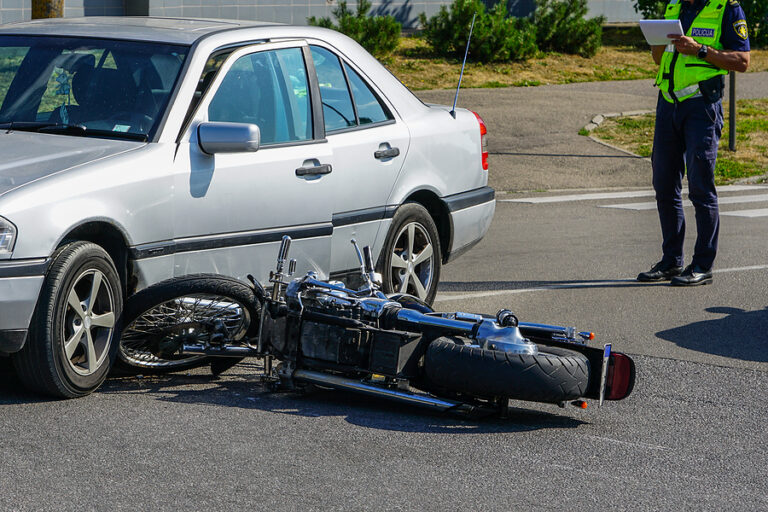Who Is At Fault In Motorcycle Accidents?

Who Is At Fault In Motorcycle Accidents
Unveiling the Truth Behind Who is at Fault in Most Motorcycle Accidents
Many believe that the motorcyclist is always at fault in a motorcycle accident, but that’s not always true. Who is at fault in a motorcycle accident varies on a case-by-case basis, and it’s important to do your research before you make any assumptions. This blog post aims to uncover the truth behind who is at fault in most motorcycle accidents and offer tips on what to do if you find yourself in this unfortunate situation.
The “Duty of Care” Doctrine: Who is at Fault in a Motorcycle Accident?
The “duty of care” doctrine refers to one’s responsibility to act with a certain level of care and caution when operating a motor vehicle. This doctrine is the basis for determining who is at fault in a motorcycle accident. In general, the person who breaches this duty of care and causes an accident is usually held responsible for the damage or personal injury resulting from the accident.
In order to determine who has breached the duty of care, the court looks at each driver’s conduct in relation to the accident. If one of the drivers was speeding, driving recklessly, or not paying attention to the road, then it is likely that they will be held liable for the accident and associated damages. On the other hand, if both drivers were following the law and displaying the proper care and caution, then it becomes more difficult to determine who is liable.
No matter which driver is found to be liable, it is important to remember that even if the other driver is found to have breached the duty of care, you may be partially or completely responsible for the accident as well. This is because you also have a duty to follow the law and exercise a reasonable level of care and caution on the road.
Common Motorcycle Accidents: Who Is At Fault?
The most common type of motorcycle accident is a vehicular collision between a motorcycle and another vehicle. Depending on the facts of each individual case, fault can be attributed to either driver. In order to do this, investigators typically look at the available evidence and courtroom testimony. Here are some common scenarios and the factors that are usually taken into consideration when determining who is at fault:
- Distracted Driving: When a driver is distracted by their phone, radio, or anything else, it can lead to a lack of attention and a potential accident. If the motorcycle driver is found to have been distracted, then they may be held liable for the accident.
- Right-of-way Violations: If a motorcyclist is found to have violated another driver’s right-of-way, then they may be held liable for the collision and any resulting personal injury or property damage.
- Speeding: Speeding can be a factor in any type of accident. If a motorcyclist is found to be speeding, they may be held liable for any resulting collision.
- Driving Under the Influence: Driving under the influence of drugs or alcohol is always illegal and can lead to serious consequences, including a greater risk of a motorcycle accident. If the motorcyclist is found to have been driving under the influence, then they may be held liable for any resulting collision.
What to Do If You Get Into a Motorcycle Accident
If you get into a motorcycle accident, the first and most important thing to do is make sure that you and anyone else who was involved in the accident is safe. After that, it’s a good idea to gather evidence of the accident and take pictures of the scene. This will help you in the event that you need to take legal action. It’s also important to be honest and cooperative with the police, even if you think the other driver is at fault.
You should also contact a personal injury lawyer as soon as possible. A lawyer can help you navigate the legal process and ensure that you get the compensation you deserve. They can also provide guidance on how to prove that the other driver was at fault and what evidence you need to support your case.
Conclusion:
Determining who is at fault in a motorcycle accident can be complex and is often dependent on the individual facts of the case. However, understanding the “duty of care” doctrine and being prepared with the proper evidence can go a long way in helping you prove your case. If you get into a motorcycle accident, it’s important to stay calm and follow the steps outlined in this blog post in order to protect your rights and ensure that you get the compensation you deserve.
Post a Comment for "Who Is At Fault In Motorcycle Accidents?"